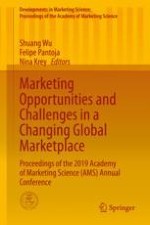Abstract
The field of marketing has begun to examine the consumption of experiences as an important and growing part of the economy and of people’s lives. In the contemporary context, people often spend a considerable amount of time and money in recreational pursuits. Consistent with the tenants of Consumer Culture Theory, leisure-time activities may provide an important means of identity and self-definition to consumers. To what extent do experiences provide a means of identity?
This ethnographic study examined people’s experiences on the several hundred-mile Camino de Santiago in Spain. First, I engaged in participant-observer research in June 2018 by walking the Camino and conducting 34 semi-structured interviews with pilgrims along the 300-km Camino Primitivo and the 500-km Camino Frances. The interviews were conducted in English and I talked with pilgrims not only from the USA, Canada, the UK, and Australia, but also from Denmark, Germany, Portugal, Luxembourg, Italy, and France. These interviews were conducted at many points along the trails. I began the interview by asking where they were from, how they heard about the Camino, and their motivation for the walk. I then asked about their experiences on the way. The interview took between 10 and 30 min, although I met many of the pilgrims at other times and asked follow-up questions. I also re-contacted five of the pilgrims I had met on the trail by email several months after they had returned home to ask them about their insights and if the walk altered their view of themselves or their world view. Finally, I followed several online Camino forums on Facebook for additional insights.
For many the journey came at a transition point such as finishing college, “emptying the nest,” or retirement. Many pilgrims suggested that the Camino provided some draw, but one that they could not fully explain. As for their experiences, many pilgrims told me that the journey provided them a means to decelerate and simplify their hectic everyday life, and some offered that this provided an opportunity to examine their lives. For many pilgrims the journey also provided a sense of identity, a sense of accomplishment, and a sense of connectedness to nature and to other people. Many pilgrims later reminisced about the trail, their experiences, and their friendships and expressed an interest to revisit the Camino in the future.
This study demonstrates that a Camino pilgrimage can provide a sense of accomplishment and a sense of identity to participants. This finding is consistent with other studies of leisure-time activities including long-distance hikes, extended international travel, and extreme adventures, and suggests that they can be important in establishing one’s identity. This is a valuable insight for Consumer Culture Theory researchers.
